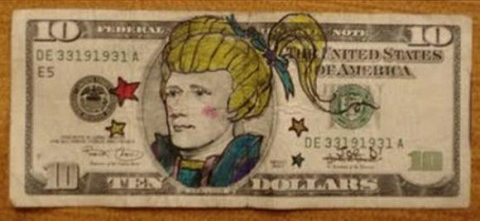In Japan, summer and winter mean bonus time, which is kind of like getting Christmas twice a year. Japanese workers often use the extra money to take a well-deserved vacation or to buy something big they’ve had their eyes on for a while.
R25, a website focused on business professionals and their lifestyle, conducted a survey with 300 businessmen to find out about last year’s bonuses. Let’s see what they discovered!
- Getting mad money!
The first question on the list was to simply find out how many of the respondents got a bonus. Sadly for the workers, it looks like only about 70 percent of them actually got anything. R25 didn’t list the previous year’s bonuses, so we did a little digging and found Kakaku.com’s research. According to Kakaku, there has been a slight but steady increase in the number of workers not getting bonuses (36 percent in 2010, 38.4 percent in 2011, and 41.4 percent in 2012). Obviously, R25 used a different sample group than Kakaku, so we can’t draw any direct conclusions, but it is useful for a frame of reference.
Next, R25 found that the average bonus was about 410,000 yen (approximately US$4,193), which is actually significantly lower than Kakaku’s findings of 560,000 yen (approximately $5,727) for the average man. Additionally, in R25’s findings, the average amount of bonuses used for fun (in other words not saved or spent on paying back loans) was only 57 percent. Kakaku broke their results down differently, but only 12 percent of their respondents were not able to use any of the money for fun. 20 percent said that they were able to use between 50,000 and 100,000 yen (very roughly $500 to $1,000) for fun, with a wide distribution in either direction.
- A not-so-silver lining
Unfortunately, it seems that only only 54.3 percent of those surveyed by R25 were happy with their bonuses. While this may seem strange to Westerners (“Free money!!”), it is helpful to remember that Japanese salaries tend to be lower than American salaries, so many Japanese people use bonuses to pad out their yearly budgets. Bonuses can have a large impact on purchasing power and the standard of living for workers.
On the other hand, Kakaku found that only 24 percent of the workers they surveyed felt their bonuses were sufficient or somewhat sufficient, with the other 76 percent finding their bonuses somewhat insufficient or very insufficient. It is important to note, though, that Kakaku included answers from both men and women. According to Kakaku, women’s bonuses only averaged out to 400,000 yen ($4,091), a full 160,000 yen (US$1,635) less than men’s, which may explain a large part of the unhappiness.
- Living (not-so) large!
In R25’s survey, the main thing respondents were happy about was being able to purchase a long-desired item, followed up by using the money to relax or purchase luxury items. Kakaku’s questions were slightly different, but they found that the main ways people used their bonus money were for savings, shopping (mainly for clothing, furniture, computers, and sports/outdoor goods), paying back loans, and traveling.
For the 45.7 percent of workers who were unhappy with their bonuses, the main three reasons they gave R25 were as follows: They weren’t able to buy anything special, the money got used up on daily, non-essential items (such as buying a nice lunch), or all of the money went to daily necessities.
So, what will this summer bring? It’s hard to say, but we imagine Prime Minister Abe is hoping everyone has a happy summer “Christmas” and goes on shopping sprees to stimulate the economy. Be sure to let us know if you’re getting (or have gotten) a bonus this year. If so, we’d be happy to help you drink it away. We’re nice and helpful like that.
Source: R25 Web, Kakaku
Image source: FunCage Blog








 Over 30 percent of surveyed Japanese managers feel intense stress from working with foreigners
Over 30 percent of surveyed Japanese managers feel intense stress from working with foreigners Live with parents or burn through your savings? Survey of young anime workers draws bleak picture
Live with parents or burn through your savings? Survey of young anime workers draws bleak picture Over 50 percent of single Japanese women in their 20s struggle to make ends meet, survey says
Over 50 percent of single Japanese women in their 20s struggle to make ends meet, survey says Survey shows how Japanese couples feel about spending so much time together sheltering in place
Survey shows how Japanese couples feel about spending so much time together sheltering in place Survey by Japanese ministry reveals high rates of “maternity harassment” in workplace
Survey by Japanese ministry reveals high rates of “maternity harassment” in workplace McDonald’s new Happy Meals offer up cute and practical Sanrio lifestyle goods
McDonald’s new Happy Meals offer up cute and practical Sanrio lifestyle goods All-you-can-drink Starbucks and amazing views part of Tokyo’s new 170 meter-high sky lounge
All-you-can-drink Starbucks and amazing views part of Tokyo’s new 170 meter-high sky lounge Studio Ghibli glasses cases let anime characters keep an eye on your spectacles
Studio Ghibli glasses cases let anime characters keep an eye on your spectacles Starbucks reopens at Shibuya Scramble Crossing with new look and design concept
Starbucks reopens at Shibuya Scramble Crossing with new look and design concept More foreign tourists than ever before in history visited Japan last month
More foreign tourists than ever before in history visited Japan last month Beautiful Sailor Moon manhole cover coasters being given out for free by Tokyo tourist center
Beautiful Sailor Moon manhole cover coasters being given out for free by Tokyo tourist center Arrest proves a common Japanese saying about apologies and police
Arrest proves a common Japanese saying about apologies and police 89-year-old Japanese man rides bike 600 kilometers to visit his 61-year-old son
89-year-old Japanese man rides bike 600 kilometers to visit his 61-year-old son Japan’s elementary school backpacks grow up with new high-class randoseru for adults
Japan’s elementary school backpacks grow up with new high-class randoseru for adults Where’s the very best seat to sit in on Japan’s Shinkansen? Our expert has an answer
Where’s the very best seat to sit in on Japan’s Shinkansen? Our expert has an answer Disney princesses get official manga makeovers for Manga Princess Cafe opening in Tokyo
Disney princesses get official manga makeovers for Manga Princess Cafe opening in Tokyo Beautiful new Final Fantasy T-shirt collection on the way from Uniqlo【Photos】
Beautiful new Final Fantasy T-shirt collection on the way from Uniqlo【Photos】 Is the new Shinkansen Train Desk ticket worth it?
Is the new Shinkansen Train Desk ticket worth it? Foreign English teachers in Japan pick their favorite Japanese-language phrases【Survey】
Foreign English teachers in Japan pick their favorite Japanese-language phrases【Survey】 Japanese convenience store packs a whole bento into an onigiri rice ball
Japanese convenience store packs a whole bento into an onigiri rice ball We try out “Chan Ramen”, an underground type of ramen popular in the ramen community
We try out “Chan Ramen”, an underground type of ramen popular in the ramen community Studio Ghibli releases Kiki’s Delivery Service chocolate cake pouches in Japan
Studio Ghibli releases Kiki’s Delivery Service chocolate cake pouches in Japan Japan’s bone-breaking and record-breaking roller coaster is permanently shutting down
Japan’s bone-breaking and record-breaking roller coaster is permanently shutting down New definition of “Japanese whiskey” goes into effect to prevent fakes from fooling overseas buyers
New definition of “Japanese whiskey” goes into effect to prevent fakes from fooling overseas buyers Our Japanese reporter visits Costco in the U.S., finds super American and very Japanese things
Our Japanese reporter visits Costco in the U.S., finds super American and very Japanese things Studio Ghibli unveils Mother’s Day gift set that captures the love in My Neighbour Totoro
Studio Ghibli unveils Mother’s Day gift set that captures the love in My Neighbour Totoro Foreign passenger shoves conductor on one of the last full runs for Japan’s Thunderbird train
Foreign passenger shoves conductor on one of the last full runs for Japan’s Thunderbird train Domino’s Japan now sells…pizza ears?
Domino’s Japan now sells…pizza ears? New Japanese KitKat flavour stars Sanrio characters, including Hello Kitty
New Japanese KitKat flavour stars Sanrio characters, including Hello Kitty Kyoto creates new for-tourist buses to address overtourism with higher prices, faster rides
Kyoto creates new for-tourist buses to address overtourism with higher prices, faster rides Sales of Japan’s most convenient train ticket/shopping payment cards suspended indefinitely
Sales of Japan’s most convenient train ticket/shopping payment cards suspended indefinitely Sold-out Studio Ghibli desktop humidifiers are back so Totoro can help you through the dry season
Sold-out Studio Ghibli desktop humidifiers are back so Totoro can help you through the dry season Japanese government to make first change to romanization spelling rules since the 1950s
Japanese government to make first change to romanization spelling rules since the 1950s Ghibli founders Toshio Suzuki and Hayao Miyazaki contribute to Japanese whisky Totoro label design
Ghibli founders Toshio Suzuki and Hayao Miyazaki contribute to Japanese whisky Totoro label design Doraemon found buried at sea as scene from 1993 anime becomes real life【Photos】
Doraemon found buried at sea as scene from 1993 anime becomes real life【Photos】 Tokyo’s most famous Starbucks is closed
Tokyo’s most famous Starbucks is closed One Piece characters’ nationalities revealed, but fans have mixed opinions
One Piece characters’ nationalities revealed, but fans have mixed opinions We asked a Uniqlo employee what four things we should buy and their suggestions didn’t disappoint
We asked a Uniqlo employee what four things we should buy and their suggestions didn’t disappoint Princesses, fruits, and blacksmiths: Study reveals the 30 most unusual family names in Japan
Princesses, fruits, and blacksmiths: Study reveals the 30 most unusual family names in Japan Survey reveals most Japanese workers want to work from home at least twice per week
Survey reveals most Japanese workers want to work from home at least twice per week Asahi Breweries to gift its over 3,000 employees with 30,000 yen each to eat out
Asahi Breweries to gift its over 3,000 employees with 30,000 yen each to eat out It’s all about the money: The best (and worst) paid student jobs in Japan
It’s all about the money: The best (and worst) paid student jobs in Japan Huge price hike for Japan Rail Pass triggers huge drop in foreign travelers who’ll buy it【Survey】
Huge price hike for Japan Rail Pass triggers huge drop in foreign travelers who’ll buy it【Survey】 More than one in three Japanese working women in survey would rather be housewives
More than one in three Japanese working women in survey would rather be housewives Get lucky: Survey polls Japanese women about their one-night-only amorous affairs in satin sheets
Get lucky: Survey polls Japanese women about their one-night-only amorous affairs in satin sheets Survey shows most Japanese employees don’t like Western-style work socials
Survey shows most Japanese employees don’t like Western-style work socials Japan overwhelmingly favors CDs to digital music
Japan overwhelmingly favors CDs to digital music How much money do you need to live in your own apartment in Japan?【Survey】
How much money do you need to live in your own apartment in Japan?【Survey】 Japanese women explain why they give “obligation chocolate” to male coworkers on Valentine’s Day
Japanese women explain why they give “obligation chocolate” to male coworkers on Valentine’s Day How many people in Japan have actually worn a couple’s outfit?
How many people in Japan have actually worn a couple’s outfit? Japanese men reveal their favorite women’s lingerie colors in survey
Japanese men reveal their favorite women’s lingerie colors in survey Improve your summer dating knowledge with these Japanese dating app survey results
Improve your summer dating knowledge with these Japanese dating app survey results Flush with New Year’s present cash, Japanese kids can now look forward to…saving it
Flush with New Year’s present cash, Japanese kids can now look forward to…saving it How many married people with children in Japan admit to cheating on their spouse? Survey says…
How many married people with children in Japan admit to cheating on their spouse? Survey says… Which prefecture has the most chilled young people? Survey asks 20 year olds “what are you worried about?”
Which prefecture has the most chilled young people? Survey asks 20 year olds “what are you worried about?”
Leave a Reply